Backfired Office Politics: When a Coworker’s Schemes Collide with Workplace Reality
In a classic case of office politics gone awry, a veteran employee’s efforts to outmaneuver her superiors end in self-sabotage. “Ally,” the most senior member of a newly-expanded team, greeted two new hires with unsolicited warnings about their allegedly incompetent boss. As time passed, it became clear that Ally had long checked out of her responsibilities, mastering the art of passive resistance by clocking in early, disappearing during critical hours, and conveniently scheduling vacations around peak workload periods. Her apparent disdain for authority earned a degree of amused admiration—until the system she gamed started gaming her back.
When annual performance reviews delivered poor marks and bonus losses, Ally’s tactics shifted from passive to openly defiant. She rejected all meaningful work, fought over rejected vacation requests, and celebrated prematurely upon being told she’d be moved to a new department—believing it was a sign of victory. In reality, her transfer left her more monitored and less coddled, with a no-nonsense boss unwilling to tolerate long breaks and minimal output. Ally’s tale is a cautionary one: play corporate chess too hard, and you might just checkmate yourself.
Every company has that professional slacker who pulls out every reason in the book to wriggle out of work

When the poster got hired, a senior team member (Ally) immediately cautioned her about how awful their boss is
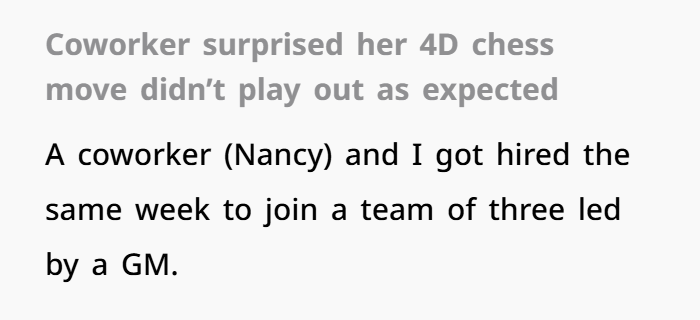
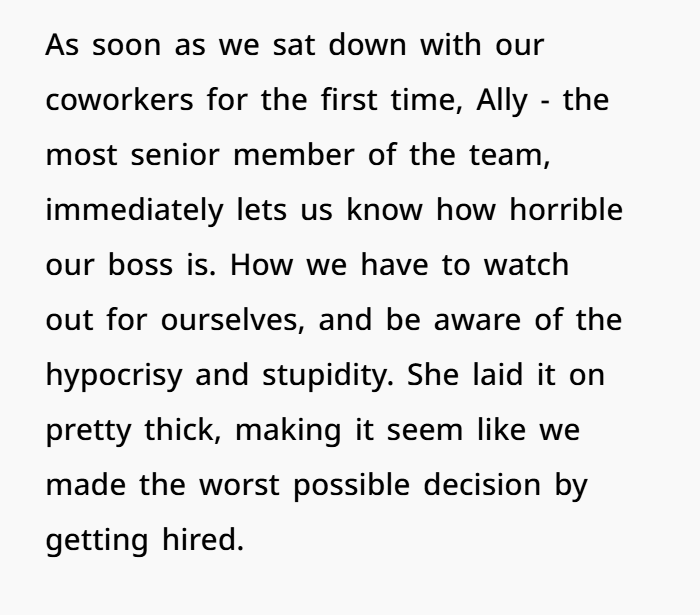
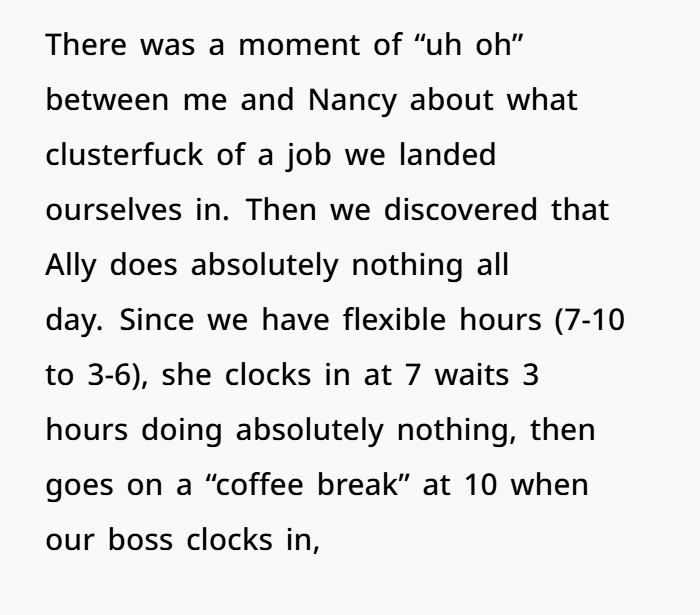
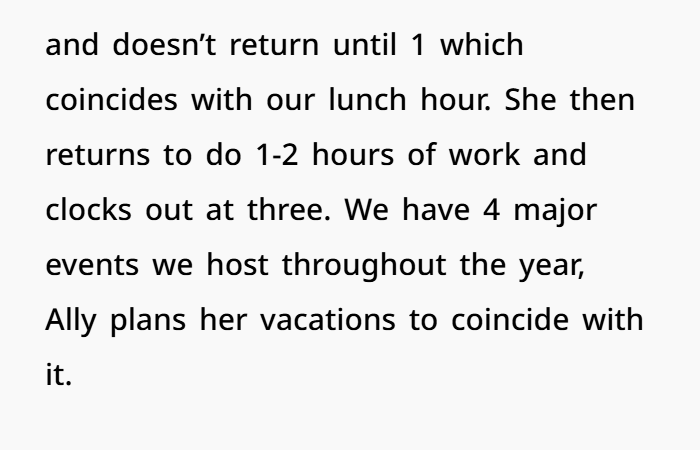
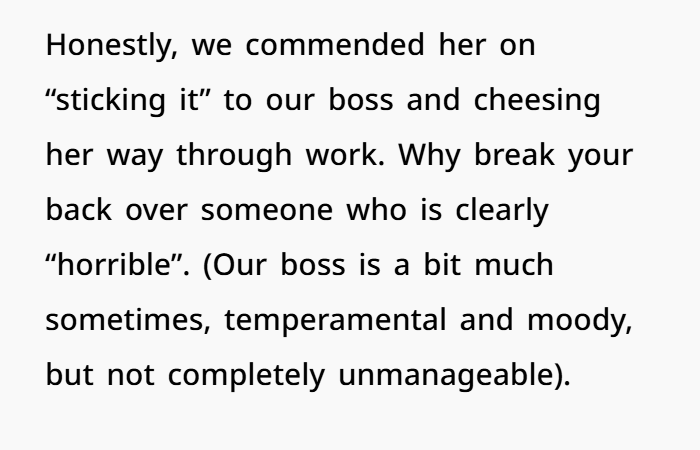
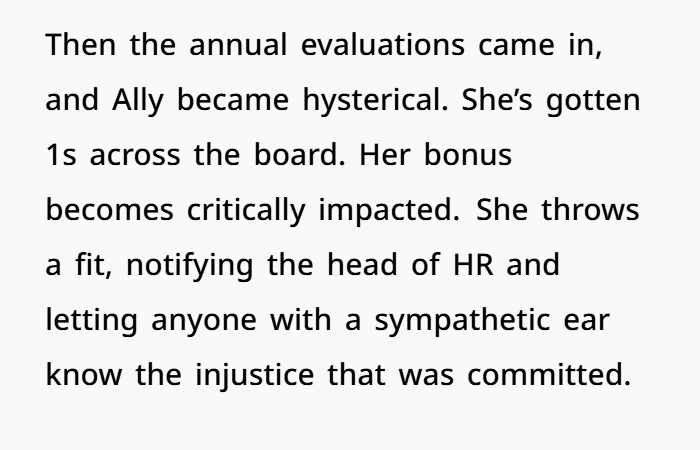
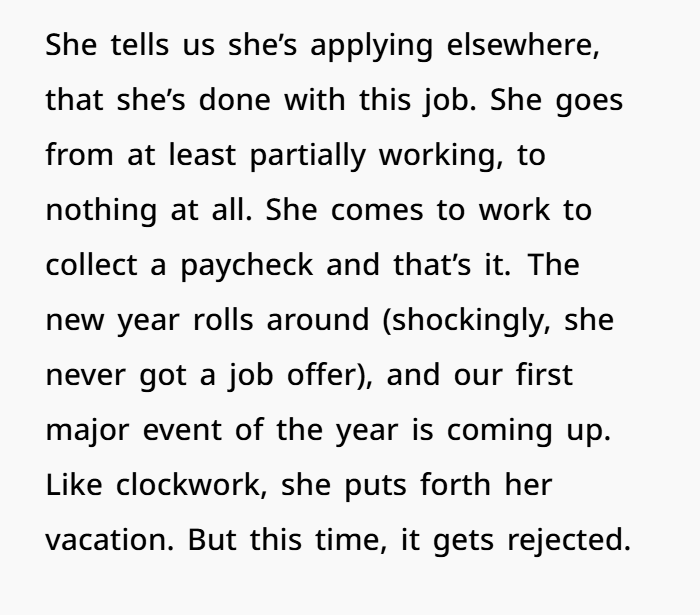
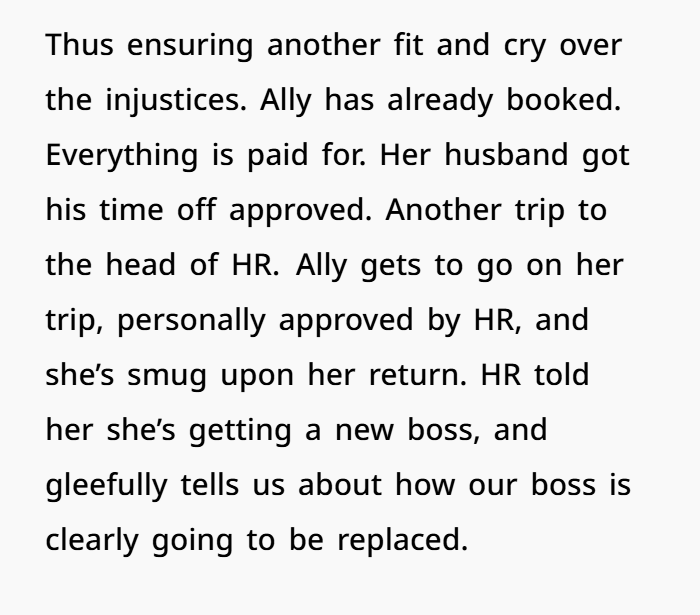
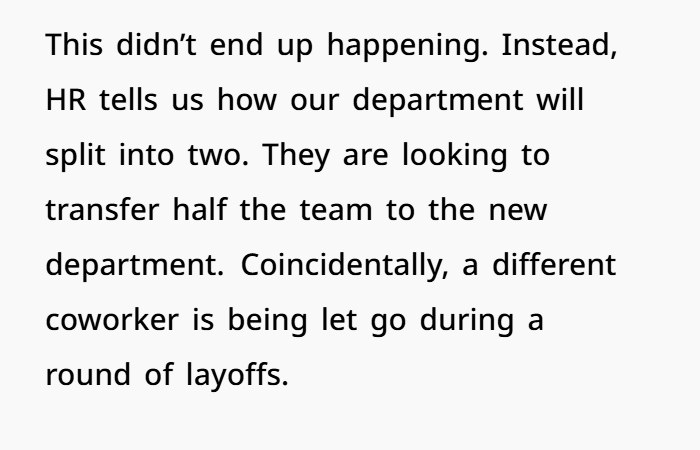
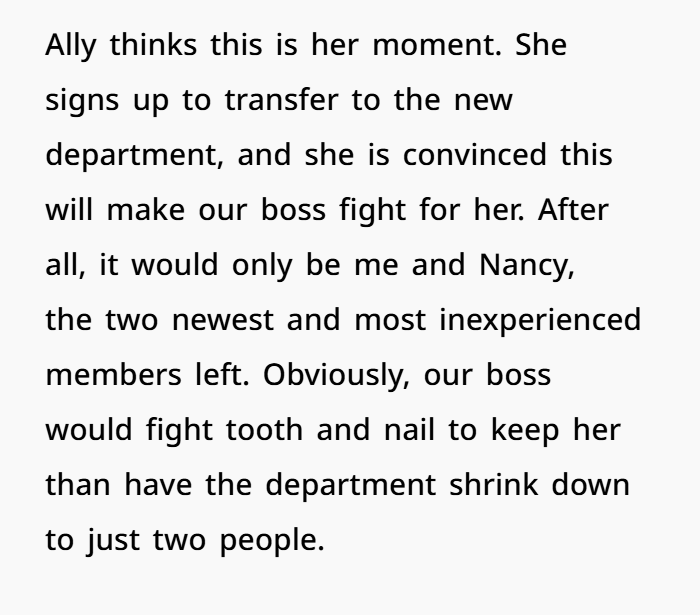

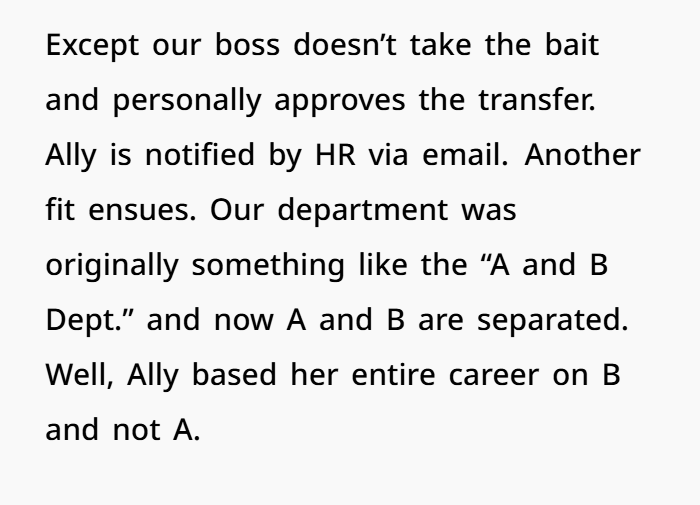
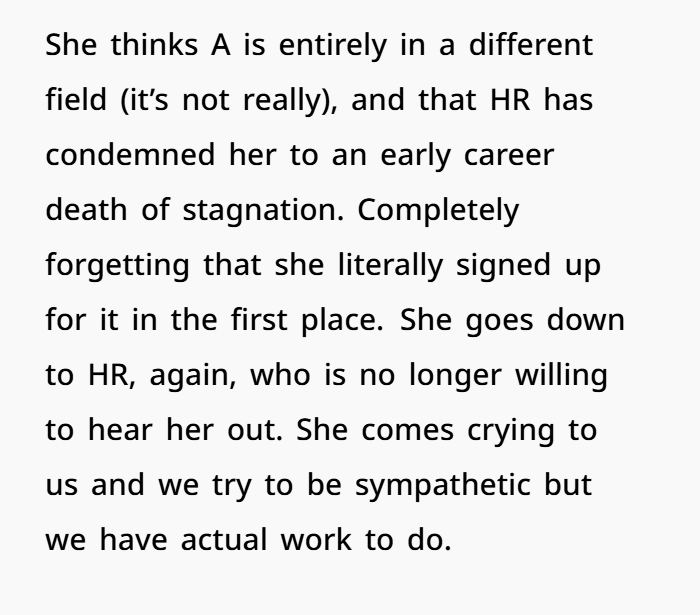
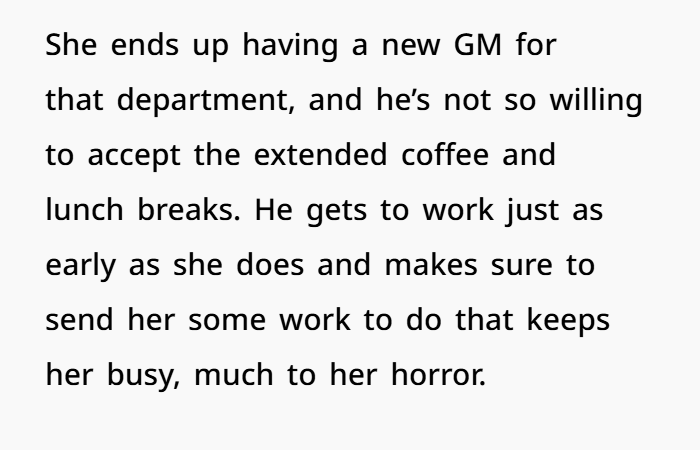
In a tale that underscores the perils of workplace politics, a seasoned employee’s attempts to outsmart management led to unforeseen consequences. “Ally,” a long-standing team member, initially influenced new hires by painting a bleak picture of their supervisor’s capabilities. However, her own work habits—marked by extended breaks and strategic absences during peak periods—soon came under scrutiny. Her tactics, once seen as savvy, culminated in poor performance evaluations and strained relationships with both colleagues and HR.

As Ally sought to navigate the corporate landscape through strategic transfers and leveraging HR channels, her plans unraveled. Her request to move to a different department, intended as a power play, was approved without resistance, placing her under a more stringent manager. This shift not only curtailed her previous liberties but also highlighted the risks of manipulating organizational systems. Ally’s experience serves as a stark reminder that while office politics can offer short-term gains, they often come at the expense of long-term stability and respect.
The Pitfalls of Manipulating Performance Evaluations
Performance evaluations are integral to employee development and compensation. When employees attempt to game this system, it can lead to detrimental outcomes. Ally’s approach—minimizing her workload and avoiding key responsibilities—was a classic example of disengagement. Such behaviors are often identified during evaluations, leading to unfavorable assessments and impacting bonuses and career progression. Organizations rely on these evaluations to make informed decisions about promotions, raises, and terminations. Therefore, consistent underperformance, even if strategically masked, is likely to be exposed over time.
HR’s Role in Addressing Workplace Conflicts
Human Resources departments are designed to mediate conflicts and ensure a harmonious work environment. However, their effectiveness hinges on the nature of the complaints and the evidence presented. In Ally’s case, repeated grievances without substantial backing may have led HR to deprioritize her concerns. It’s essential for employees to present clear, documented issues when seeking HR intervention. Moreover, over-reliance on HR to resolve personal workplace challenges can be counterproductive, especially if the underlying issues stem from one’s own actions or inactions.
The Risks of Strategic Transfers

Internal transfers can offer employees new opportunities and environments. However, when used as a strategic tool to exert pressure or escape accountability, they can backfire. Ally’s decision to request a transfer, anticipating that her current manager would resist and negotiate her retention, misfired when the transfer was approved without objection. This move placed her in a department with stricter oversight, eliminating the leniencies she previously enjoyed. Such outcomes highlight the importance of understanding the implications of transfers and ensuring they align with genuine career aspirations rather than tactical maneuvers.
Netizens felt that the slacker got exactly what she deserved, as she was only taking her paychecks without putting any work in


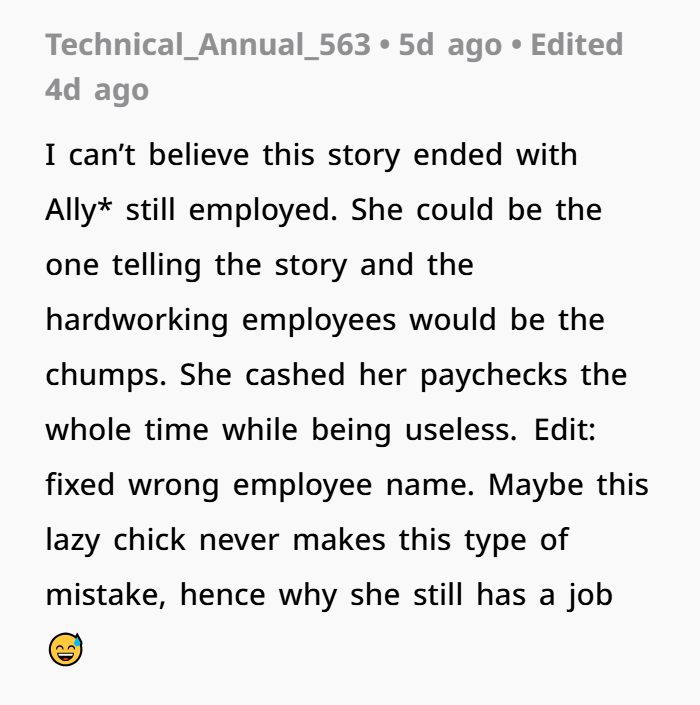
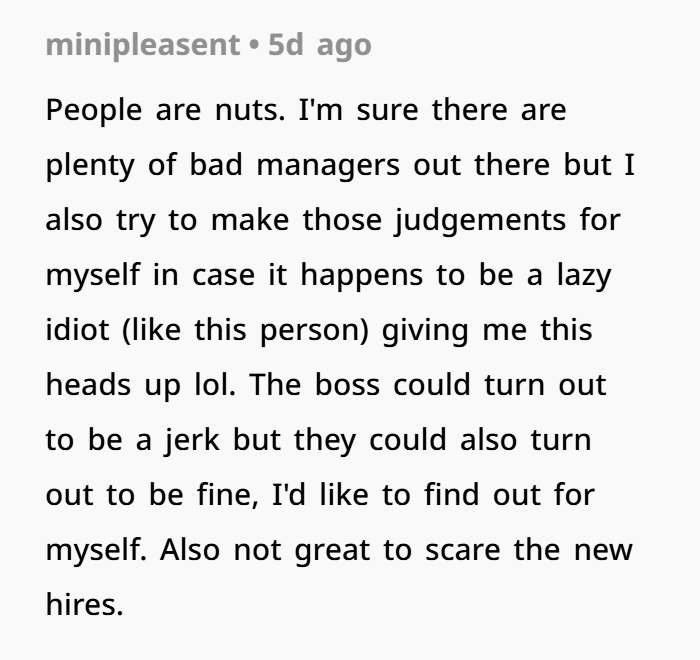
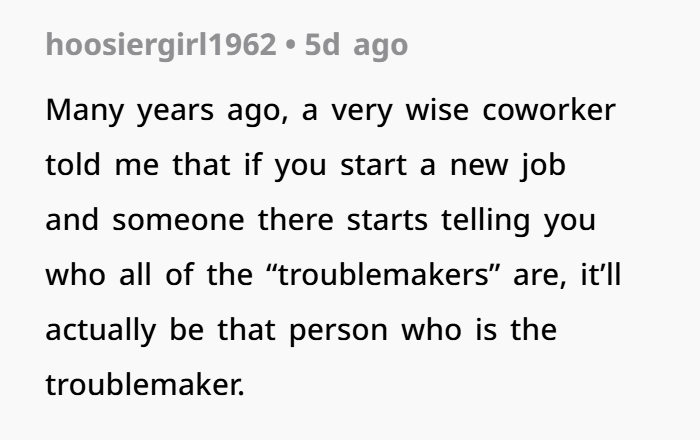



Ally’s journey through the corporate maze illustrates the dangers of prioritizing short-term gains over long-term credibility. While she initially navigated the system to her advantage, her strategies ultimately led to diminished trust, reduced autonomy, and a more challenging work environment. This narrative serves as a cautionary tale for professionals: genuine engagement, consistent performance, and transparent communication are the cornerstones of sustainable career success. Manipulative tactics may offer temporary relief but often result in lasting repercussions.

